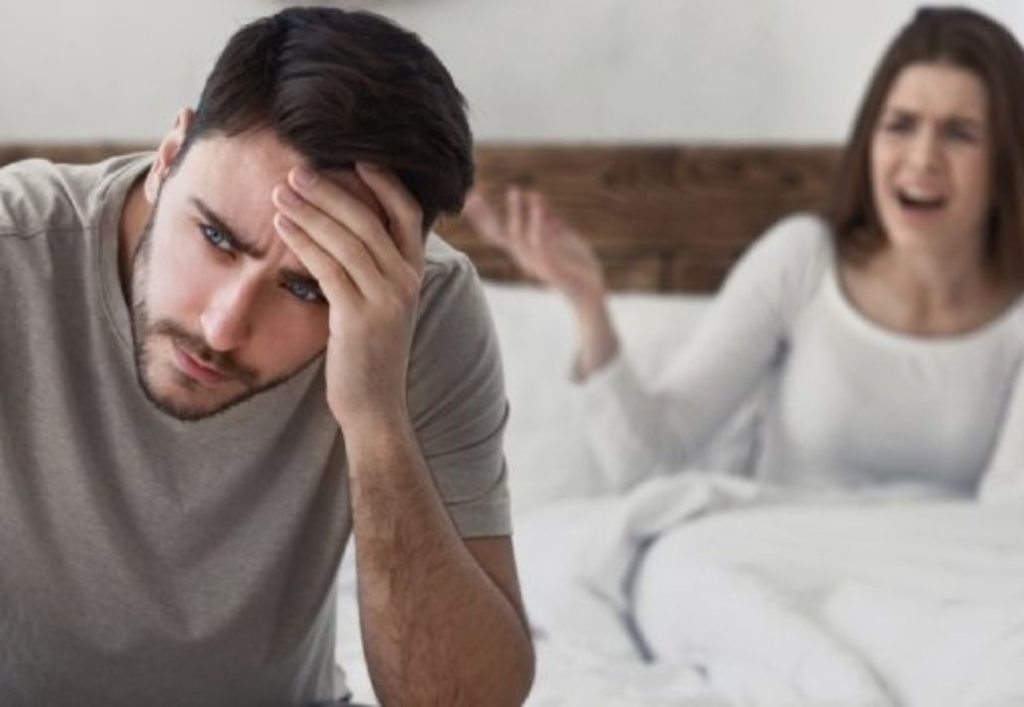A couple’s “emotional” and “sexual” connections are intertwined and mutually influential. This means that a couple’s quality of life and intimacy might benefit from a sexual connection that is strong and mutually satisfying. Possibilities for improved health on several fronts (including psychological and social) are also mentioned. However, a rising problem of sexual dysfunctions is impacting roughly 43% of women and 31% of men worldwide.

It’s everywhere, yet for some reason, nobody ever talks about it. Typically, physical causes are cited as the explanation. Many sexual health problems, however, may be traced back to irrational anxieties and unresolved complexes. Sexual excitement (and pain) are also mental states, proving that sex is more than just a physical act.
Since our sexual performance is affected by our emotions, thoughts, and hormones, these factors also affect each other. Treating these concerns consistently is crucial. Let’s start talking about it on October 10, World Mental Health Day, so we can figure out how the two are connected.
Sexual dysfunction frequently has psychological origins. Problems in the bedroom often have deeper roots in stress and mental health difficulties that are often overlooked. Psychological and sexual well-being are like two sides of the same coin.
Sadly, the stigma and guilt surrounding the topic prevent many from seeing the link. Lack of arousal/desire, pain, and other illnesses are just some of how mental health problems including depression, anxiety, OCD, and others can emerge as sexual dysfunction in both men and women. Patients’ quality of life is severely impacted when sexual dysfunction occurs alongside mental health disorders like depression. Anyone struggling with mental illness knows how easy it is to feel unattractive and unworthy of sexual interest.

It is well-known that certain mental health issues can have serious consequences on one’s physical health and standard of living. Intimacy, self-assurance, and satiety in the bedroom may all suffer as a result. Anxiety and depression, for instance, have been linked to sexual issues including ambivalence, low arousal, impotence, dissatisfaction with sexual life, pain in the pelvis, and a lack of desire (difficulty in reaching orgasm). Patients with mental health problems may also develop compulsive sexual behaviour (or addiction) in rare situations.
Some antipsychotic and antidepressant drugs can cause sexual dysfunction, which is both serious and distressing. We can’t just disregard these problems without providing adequate solutions. Ignoring problems or symptoms can create even more obstacles to communication and add fuel to the fire that can lead to a downward spiral in emotional and sexual well-being. As a result, getting help from a trained mental health expert is crucial.
Problems with sexual or mental health can impact people of any age or gender. People are becoming more receptive to addressing and destigmatizing mental health issues when they come up. Now we need to talk about how a person’s sexual health affects their overall health and happiness.
Due to the interconnected nature of sexual and mental health issues, they must be addressed together. Techniques like “sensate attention” and “non-demand touching,” as well as more traditional forms of treatment such as counselling and cognitive behavioural therapy, can help people overcome emotional barriers and rediscover their sexual sensations. A sex-positive mindset is required, and these topics need to enter the public discourse.

